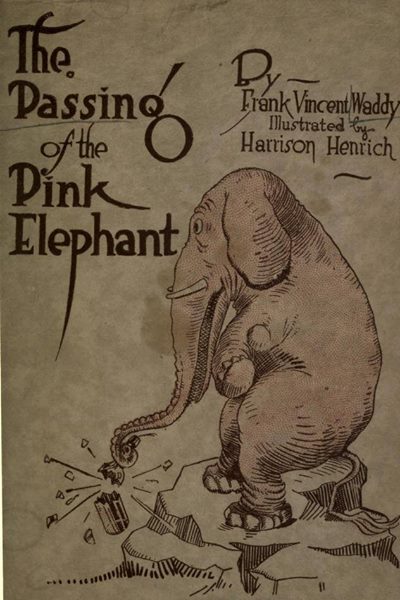
For me, the elephant in the room was a good visual for recognizing “denial.” Maybe if I ignore it, the elephant will go away. Perhaps if I appease it by offering a few peanuts it will have the good sense to understand my needs and allow me to continue my work. Nobody else is saying anything about the elephant. Maybe they don’t see it. In that case, I’ll say nothing. Then again, it may not be there at all if I close my eyes. It could be a baby elephant. That wouldn’t be so bad.
Denial is a brutal enemy, because it doesn’t allow us to confront the problem, find a solution, or give us any hope of recovery. A while back a woman was trying to convince me that denial was relative. She insisted that a person who doesn’t see a problem isn’t in denial because they don’t believe there is a problem. No amount of evidence makes any difference. If my life is out of control, my relationships are broken or damaged, my job is gone and I am having health problems as a result of my drug use, and if I am the only person that doesn’t see it, that’s denial. Addiction Denial isn’t subjective, it’s objective.
People always think they can handle it. They can quit any time. They will not become addicted. They deny the problem. That’s why the first of the 12 Steps starts out by stating, “We admitted…” Step 1 is about getting over denial. I see the elephant in the room, I acknowledge it and I realize that if I don’t remove the elephant in the room, cleaning up the mess will be a major task. After all, you have to feed the elephant and its droppings are not pleasant. Still, denial is powerful and people will actually choose to live with the elephant rather than admitting its existence.
Denial robs us of opportunity. Let’s say your “elephant” is tiny, a new-born. By not admitting that the problem is there, that your control is slipping, that the potential for disaster is looming around the corner, there is not way you’re going to address the issue and find a strategy to deal with it. Addictions, like elephants, can grow in to very large problems. Denial is also myopic and arrogant. I don’t see it, so you’re wrong. You can’t possibly be right, because that would mean that I’m wrong and we can’t have that.
Denial stunts personal growth. Health issues aside, by feeding the elephant instead of our soul, we stagnate as a person. There is no room for reason, for stretching one’s understanding or reaching out to others. There is no room for development. Addiction keeps us trapped in one place, to feed the elephant and limits human potential.
A THOUGHT FROM THE JUMBO.
Walk In Dry Places
August 2
“That’s the way I am”
Getter BetterBad behavior is sometimes justified as a form of self-expression: “That’s the way I am.” Others are supposed to tolerate this or risk losing a friendship.
In our program, we should modify any behavior that offends or hurts others. If we have been too brutally frank in our comments, for example, maybe we’re at fault. What we call honesty is really a form of cruelty.
If we persist in “being the way we are” even when it doesn’t work, we have nobody to blame but ourselves when things go wrong. Other people are entitled to be treated fairly and decently. Just as we want to be. Perhaps “the way I am” is something that can be changed for the good of all, ourselves included.
If I have habits and traits that cause friction with others, I’ll take a new look at them. It’s possible that this is something I can and should change.

